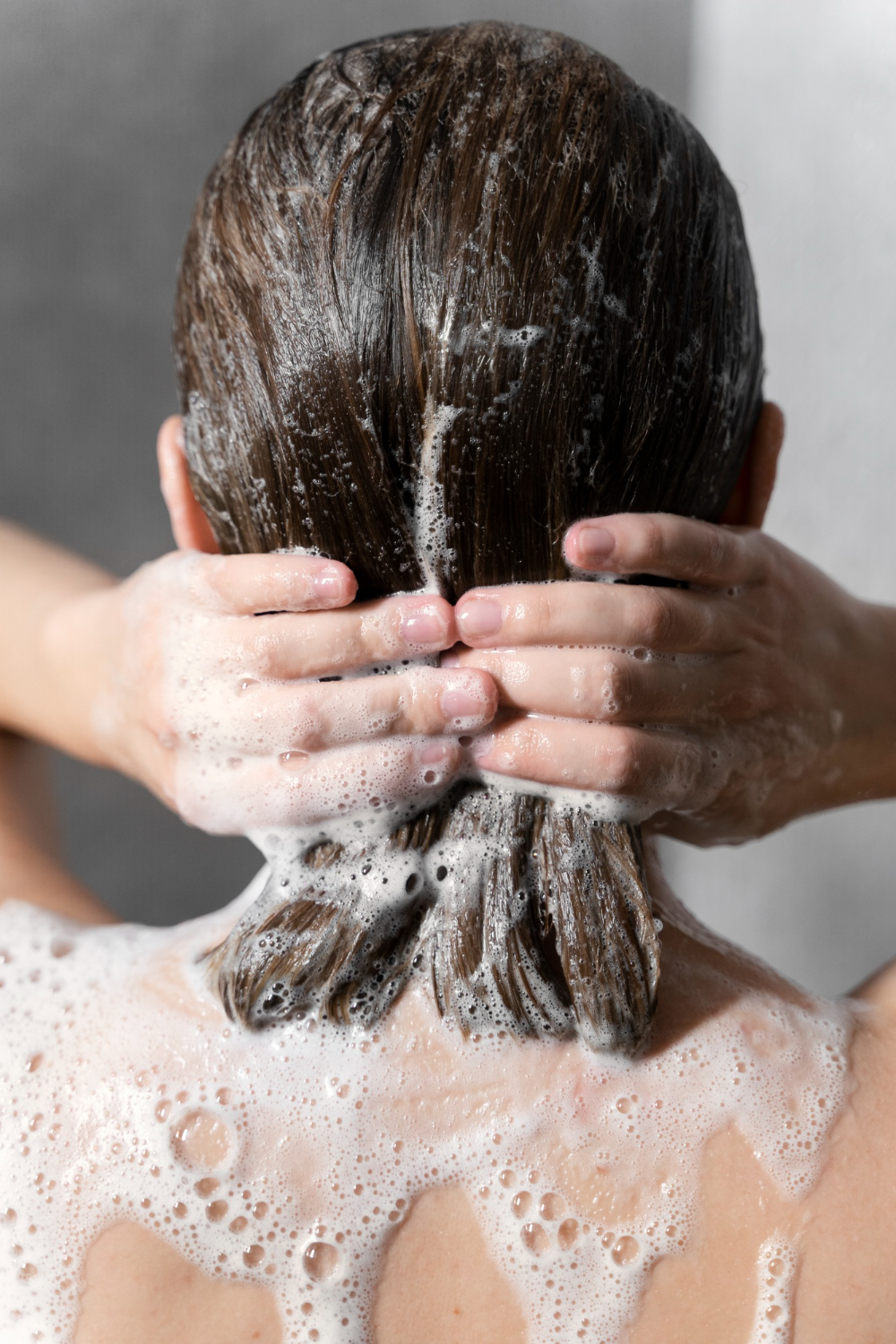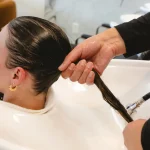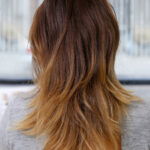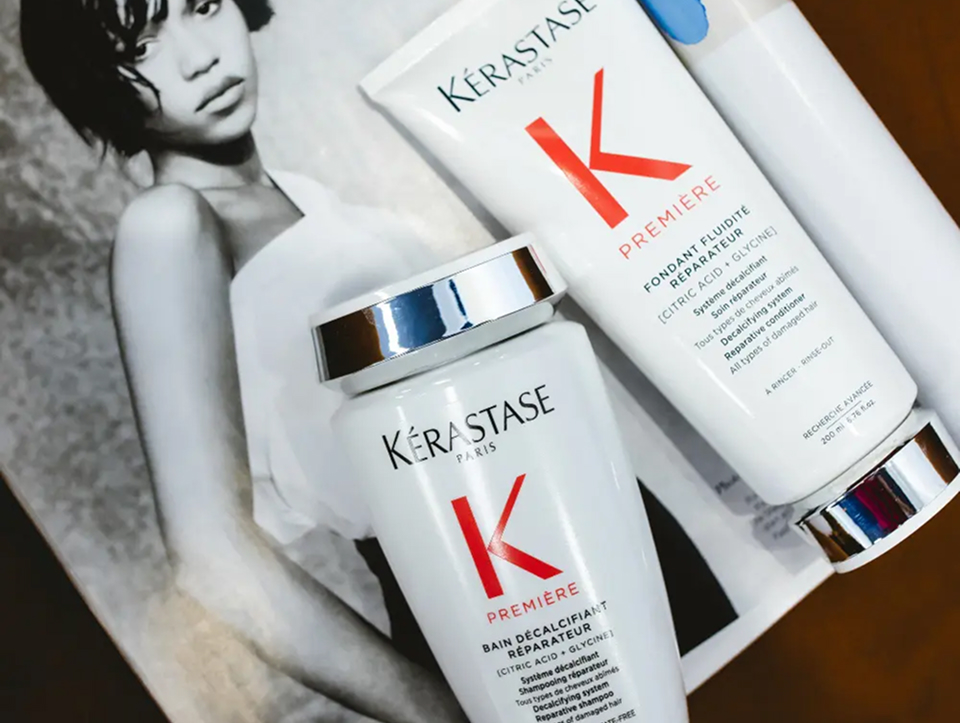You’ve probably wondered: “Is shampoo bad for your hair?” While shampoo is for cleansing your scalp and hair, not all shampoos are created equal. Some contain ingredients that can harm your hair and scalp over time.
In this guide, we’ll delve into the science behind shampoo, identify harmful ingredients, and offer expert tips for selecting the right products to maintain healthy and vibrant hair.
Why People Think Shampoo Is Bad for Your Hair
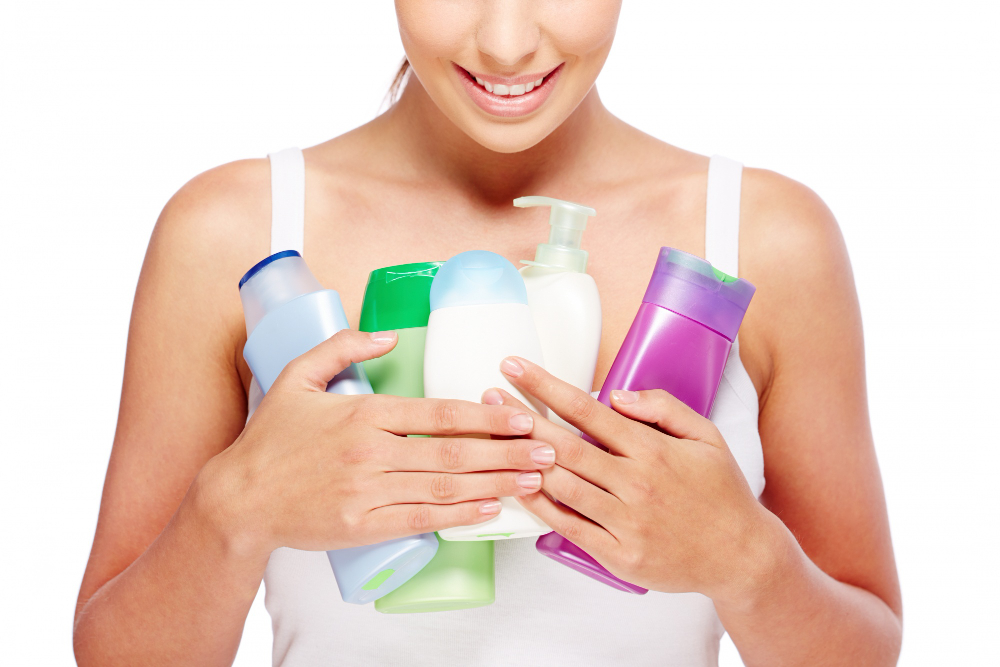
Shampoo is designed to cleanse your scalp and hair by removing dirt, oil, and product buildup. But many people notice their hair feels dry or brittle after washing. This often happens because of:
- Harsh chemicals – Some shampoos contain sulfates or parabens that strip natural oils.
- Over-washing – Daily shampooing can leave hair dry, especially for curly or fine hair.
- Wrong shampoo for your hair type – Using a volumizing shampoo on dry hair can worsen dryness.
🧬 Studies show that gentle, sulfate-free shampoos are less likely to irritate the scalp and can help maintain the hair’s moisture balance.
Harmful Ingredients to Avoid in Shampoo
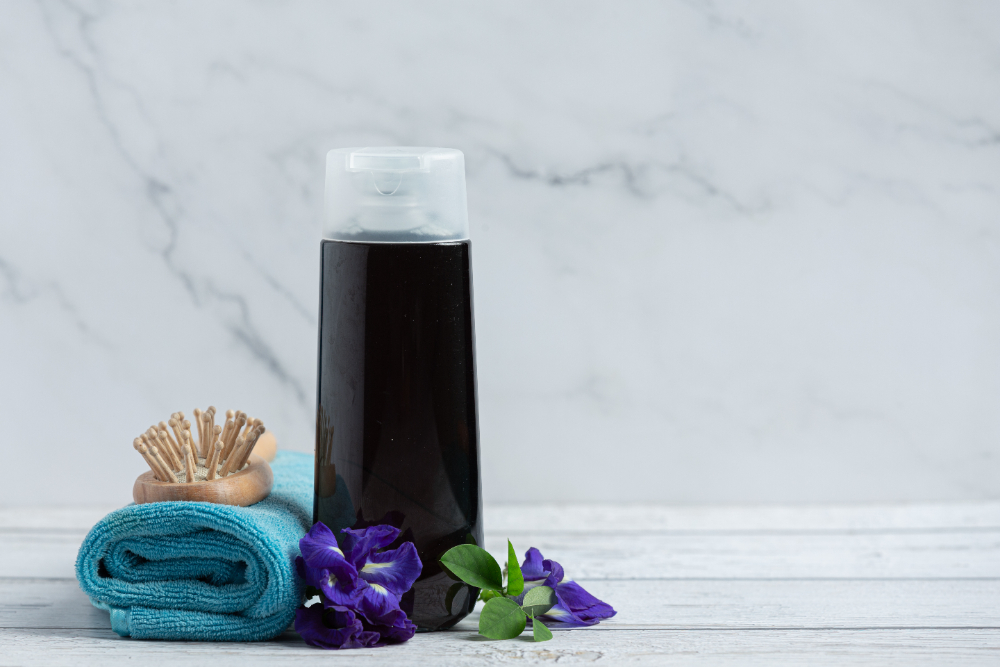
To protect your hair, steer clear of shampoos containing the following ingredients:
- Alcohols (e.g., Isopropyl Alcohol): Can dry out the scalp and hair, leading to brittleness and breakage.
- Sulfates (Sodium Lauryl Sulfate, Sodium Laureth Sulfate): These surfactants can strip natural oils from your scalp, leading to dryness and irritation.
- Parabens: Used as preservatives, parabens can disrupt hormone function and may contribute to hair loss.
- Formaldehyde-Releasing Preservatives (e.g., DMDM Hydantoin): These chemicals can cause scalp irritation and have been linked to cancer.
- Synthetic Fragrances: Often contain phthalates, which can disrupt hormone function and contribute to hair thinning.
When is Shampoo Bad For Your Hair?
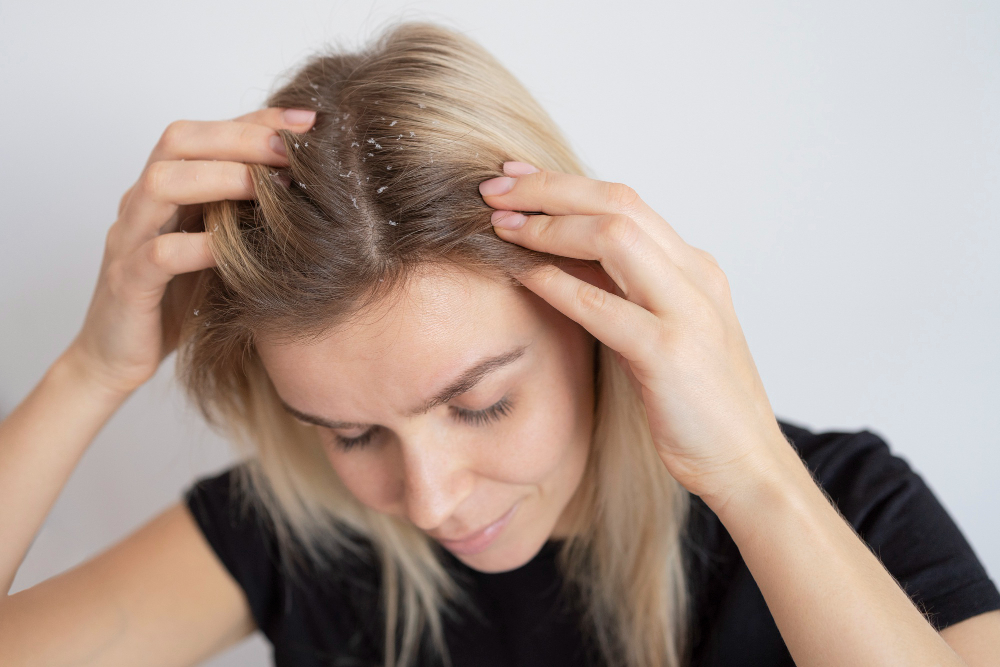
Even if shampoo is generally safe, improper use can cause problems:
1️⃣ Over-Washing Your Hair
Shampooing too frequently can strip your scalp of its natural oils, leaving your hair dry and frizzy. Most hair types are best suited for 2–3 washes per week. Fine or oily hair may require more frequent washing, but adjust the frequency to suit your hair’s needs.
2️⃣ Using Harsh Ingredients
Look out for sulfates (like Sodium Lauryl Sulfate) or strong detergents—they strip moisture and can irritate your scalp. Instead, choose gentle or sulfate-free shampoos. 📚 Learn more about types of shampoos.
3️⃣ Ignoring Your Hair Type
Curly hair, color-treated hair, and chemically processed hair require different care. The wrong shampoo can weaken strands or fade color. Consider checking your hair type and concerns before selecting a shampoo.
4️⃣ Hot Water & Vigorous Scrubbing
Hot water can open hair cuticles, making them more prone to damage. Similarly, scrubbing aggressively can cause breakage. Instead, use lukewarm water and massage gently.
5️⃣ Skipping Conditioner
Shampoo cleans, but it doesn’t restore moisture. Always follow with a conditioner to keep hair smooth and hydrated.
👉 Explore these amazing shampoos for dry scalp
Natural Alternatives for Hair Care

Opting for shampoos with natural ingredients can be beneficial for your hair health. Look for products containing:
- Aloe Vera: Soothes the scalp and promotes hair growth.
- Tea Tree Oil: It has antifungal properties that can help alleviate dandruff.
- Argan Oil: Moisturizes and nourishes the hair, adding shine.
- Chamomile Extract: Calms the scalp and enhances hair color.
Tips to Keep Your Hair Healthy While Using Shampoo

- Use the Right Shampoo for Your Hair – Whether you have oily roots, dry ends, or color-treated hair, choose a shampoo specifically designed for your hair type. 📚 See how to read hair product labels for guidance.
- Consider No-Poo or Low-Poo Options – If your hair is sensitive or very dry, explore the No-Poo method to reduce shampoo frequency and maintain natural oils.
- Rinse Thoroughly – Any leftover shampoo can irritate the scalp or weigh down the hair.
- Protect Your Scalp – Learn about common scalp conditions to identify signs of irritation or imbalance early.
- Use Hair Masks or Oils Weekly – They replenish moisture lost from washing and keep hair soft and shiny.
- Dry Carefully – Gently pat your hair dry with a towel instead of rubbing, and avoid brushing wet hair too aggressively.
- Try Professional Advice – Book a consultation with a hair specialist to tailor your shampoo routine to your hair type and goals.
- High-Quality Ingredients – Look for shampoos that contain natural oils, silk proteins, vitamins, or keratin for added nourishment. Trusted brands like Kerastase provide research-backed formulas.
The Truth About Shampoo and Your Hair
Shampoo is not your enemy, but the wrong product, technique, or frequency can be harmful.
By choosing a gentle shampoo, washing your hair according to its type, and following good hair care practices, you can maintain healthy, shiny, and strong hair.
If you’re unsure about your hair type or which shampoo is best for you, book a consultation with a professional hair specialist today.
FAQ
Is shampoo bad for your hair?
Not naturally. Using the wrong shampoo, over-washing, or harsh chemicals can cause damage, but using the right product and frequency can help keep hair healthy.
Does shampoo damage hair?
Shampoo can strip natural oils if used excessively or misapplied. Choose gentle, sulfate-free formulas for less damage.
Can I use shampoo every day?
If you exercise regularly and have fine hair, it’s recommended to wash your hair daily. However, most people benefit from shampooing every two to three days.
Is it bad to shampoo every day?
For most hair types, daily shampooing is unnecessary and can dry hair. Adjust based on oiliness and lifestyle.
Can not using shampoo be harmful?
Going completely without shampoo is not harmful for everyone, but some individuals may experience scalp buildup or an unpleasant odor. Low-poo or no-poo methods work for many hair types.
How often should I shampoo my hair?
Washing twice to three times per week is standard, but individuals with oily scalps or fine hair may need to wash more frequently. Adjust to your hair’s needs.

